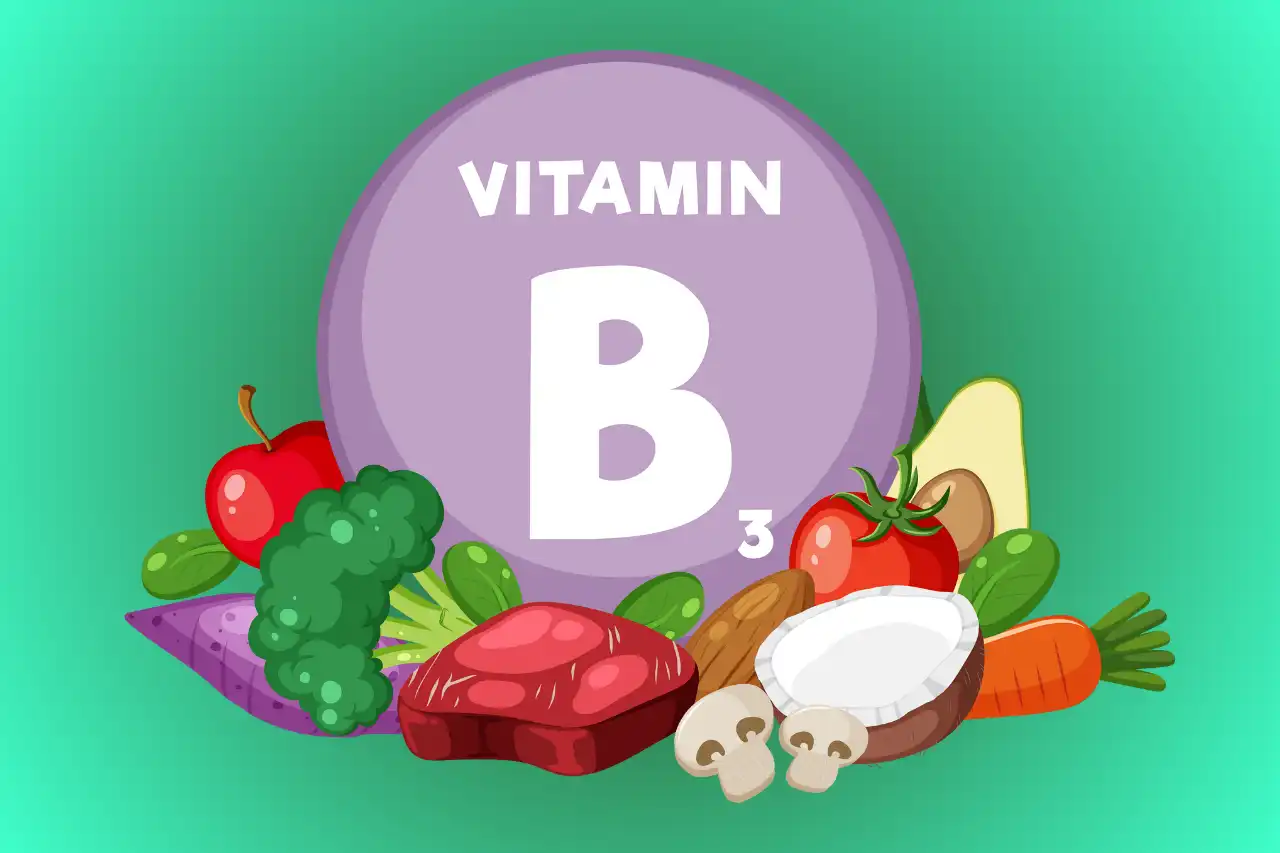-: VITAMIN – B9 :-
Vitamin B9 – The “Growth & Vitality Vitamin” for Cells & Energy…!!!
Vitamin B9 or Folacin,also known as Folate (naturally occurring) or Folic Acid (synthetic form), is often called the “Growth & Vitality Vitamin” because of its essential role in cell formation, DNA synthesis, and red blood cell production. heart health, and energy production.
Daily Requirements
Since Vitamin B9 is water-soluble and not stored in large amounts, a daily intake is necessary:-
Men
- Teens (9-18 years) – (300-400 mcg) per day
- Men 18+ years – 400 mcg per day
Women
- Breastfeeding Mother – 500 mcg per day
- Breastfeeding women – 600 mcg (to prevent neural tube defects)
Children
- Infants (0-6 months) :- 65 mcg per day
- Children (1-8 years) :- (80-150 mcg) per day
Function on different Organ
- Brain & Nervous System
Details
Vitamin B9 supports your cognitive function, memory, and mental clarity.Also it is important to reduce your depression and anxiety levels.
- Blood & Circulatory System
Details
Folate is very essential for red blood cell formation, preventing anemia.
- Heart Health
Details
Folic acid also regulates your homocysteine levels, reducing the risk of heart disease including stroke.
- Fetal Development
Details
Vitamin B9 is also very crucial during pregnancy to prevent birth defects like spina bifida.
- Immune System
Details
Folic acid is helpful in white blood cell production, and also plays a key role in strengthening immunity.
- DNA
Details
Folate plays a pivotal role in DNA synthesis.
Symptoms incase of Deficiency
- Fatigue & Weakness.
- Pale Skin & Shortness of Breath.
- Mouth Sores & Swollen Tongue.
- Poor Concentration & Memory Issues.
- Pregnancy Complications such as risk of neural tube defects in babies.
- Muscle weakness.
- Visionon issues.
- Heart palpitations.
- Megaloblastic anemia, a condition marked by abnormally large and immature red blood cells.
Diagnosis
- Serum Folate Test
Details
Measures folate levels in the blood to assess recent intake.
- Red Blood Cell (RBC) Folate Test
Details
Measures folate stored in red blood cells, providing a more accurate long-term status.
Both tests are used to diagnose folate deficiency or monitor supplementation.
Food Sources
Veg Sources
- Leafy greens
- Spinach
- Kale
- Lettuce.
- Legumes
- Lentils.
- Chickpeas.
- Black beans.
- Soybeans.
- Kidney beans.
- Whole Grains
- Brown rice.
- Quinoa.
- Whole wheat bread.
- Millets.
- Nuts & Seeds
- Sunflower seeds.
- Almonds.
- Peanuts.
- Hazelnuts.
- Fruits
- Oranges.
- Bananas.
- Papayas.
- Avocado.
- Grapefruits.
- Vegetables
- Turnips.
- Beets.
- Broccoli.
- Red bell peppers.
- Cabbage.
- Potatoes.
- Cauliflower.
- Fortified Foods
- Cereals.
- Pasta.
- Rice.
- Tofu.
Non-Veg Sources
- Lean Meats
- Chicken.
- Turkey.
- Fish
- Salmon.
- Tuna.
- Organ Meats
- Liver.
- Kidney.
- Milk products
- Milk.
- Yogurt.
- Butter.
- Others
- Eggs.
What if Overconsumption
Although excess Folate from food is rare, high doses from supplements (above 1000 mcg/day) may cause:-
- Masking of Vitamin B12 Deficiency leading to potential nerve damage.
- Gastrointestinal discomfort, including nausea, bloating, and abdominal cramps.
- Sleep Problems & Irritability.
- Skin complications.
- Loss of appetite.
Vitamin B9 is a powerhouse nutrient for energy, brain health, and red blood cell production. It is especially vital for pregnant women to ensure healthy fetal development. Since our body doesn’t store much, a balanced diet with folate-rich foods is essential to stay energized, sharp, and healthy every day..!!!












